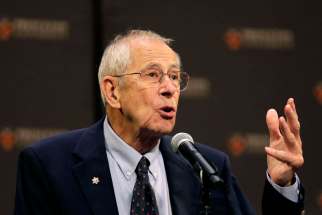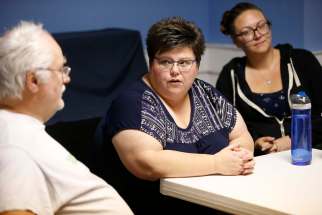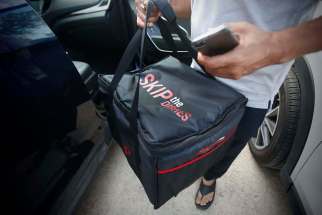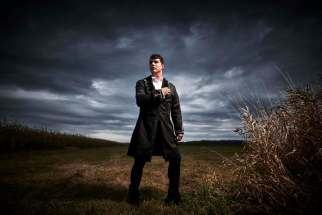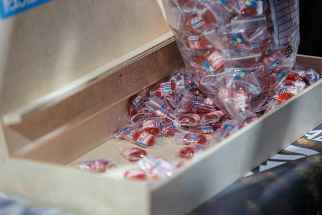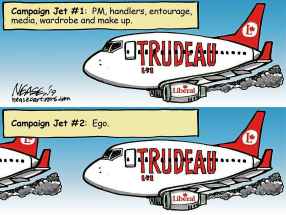Museum masterpiece Jeremy Dutcher brings his award-winning album — and an Indigenous message of reconciliation — to Winnipeg
Read this article for free:
or
Already have an account? Log in here »
To continue reading, please subscribe:
Monthly Digital Subscription
$0 for the first 4 weeks*
- Enjoy unlimited reading on winnipegfreepress.com
- Read the E-Edition, our digital replica newspaper
- Access News Break, our award-winning app
- Play interactive puzzles
*No charge for 4 weeks then price increases to the regular rate of $19.00 plus GST every four weeks. Offer available to new and qualified returning subscribers only. Cancel any time.
Monthly Digital Subscription
$4.75/week*
- Enjoy unlimited reading on winnipegfreepress.com
- Read the E-Edition, our digital replica newspaper
- Access News Break, our award-winning app
- Play interactive puzzles
*Billed as $19 plus GST every four weeks. Cancel any time.
To continue reading, please subscribe:
Add Free Press access to your Brandon Sun subscription for only an additional
$1 for the first 4 weeks*
*Your next subscription payment will increase by $1.00 and you will be charged $16.99 plus GST for four weeks. After four weeks, your payment will increase to $23.99 plus GST every four weeks.
Read unlimited articles for free today:
or
Already have an account? Log in here »
Hey there, time traveller!
This article was published 08/10/2019 (2259 days ago), so information in it may no longer be current.
Life has been a whirlwind for Jeremy Dutcher since he released his debut album Wolastoqiyik Lintuwakonawa in 2018.
Concert Preview
Jeremy Dutcher
With the Winnipeg Symphony Orchestra
● Wednesday, 7:30 p.m.
● Burton Cummings Theatre
● Tickets: $25 plus fees at wso.ca, 204-949-3999
The album won the 2018 Polaris Music Prize and a 2019 Juno Award for Indigenous Music Album of the Year. After playing a sold-out concert earlier this year at the West End Cultural Centre, Dutcher returns to Winnipeg Wednesday, performing his complete album live with the Winnipeg Symphony Orchestra at the Burton Cummings Theatre.
“I’ve never been to the Burt before,” says Dutcher. “I’ve heard it’s iconic. I’m excited to go in there and play songs that are older than the building itself.”
The Burton Cummings Theatre has existed for over a century but the music on 28-year-old Dutcher’s album are even older than that.
“It all started about six years ago,” says Dutcher, a Wolastoqiyik who hails from Tobique First Nation in New Brunswick. “I was sitting at my kitchen table with Maggie Paul, a Wolastoq elder and song carrier from my community. I wanted to know what it sounded like here all those years ago. I wanted to know Wolastoq music.”
“She told me, ‘If you want to know about the old songs you can’t stay here. People don’t know them anymore. You have to go to the museum.’”
Paul’s advice sent Dutcher on a journey to Ottawa, where he visited the Canadian Museum of History. There he discovered the wax cylinders that contained more than 100 centuries-old traditional Wolastoq songs that inspired him to create his album.
“So much of our history sits in museums as objects for consumption by people who want to know more about us but have no interest in actually getting to know us and how we live today,” Dutcher says. “I wanted to dig out that lost music and show people how beautiful Wolostoq heritage is.”
“I am very, very lucky that I speak my language. I was gifted that by my mother. It’s tough when you grow up in a country that doesn’t value Indigenous language. In Canada it’s French or English that gets you a job.”
Dutcher’s album is sung entirely in Wolastoqey, an endangered language that he speaks fluently.
“I am very, very lucky that I speak my language,” Dutcher says. “I was gifted that by my mother. It’s tough when you grow up in a country that doesn’t value Indigenous language. In Canada it’s French or English that gets you a job.”
Dutcher believes the message gets across to listeners despite the language barrier.
“I recorded it in Wolastoqey because I wanted to make sure that young people from my community know that this album is for them and not for the consumption of mass media,” he says, “even if it’s sort of turned out that way.”
With a Juno under his belt and an orchestra tour across Canada and the U.S. underway, it’s impossible not to notice how the album has been consumed by listeners on a wide scale. But rather than being frustrated by the attention, Dutcher is inspired by the opportunities his success presents.
“Who buys a ticket to the symphony? It’s the people who have influence and power,” he says. “Now I have the microphone and can speak something to these people that can matter, something that can make a difference and encourage healing.”
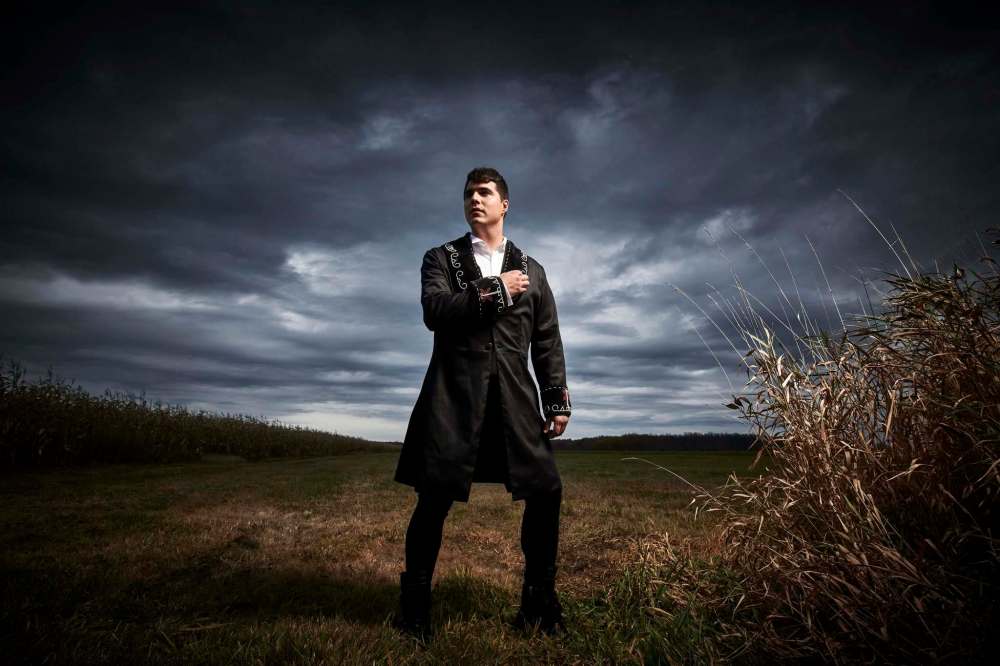
Dutcher believes Winnipeg, in particular, could use some healing.
“More than other cities on the tour, Winnipeg has a tense and raw history of native dispossession and disparity,” he says. “I feel a sense of responsibility coming here. I’m excited to bring our songs to spaces like the Burton Cummings Theatre and to let Indigenous people know that these are our spaces, too. Our songs belong here.”
Dutcher has been singing traditional Wolastoq songs for most of his life, but despite being known as a classical operatic tenor, he didn’t discover classical music until he was 17 years old.
“I was doing some theatre — shows like Beauty and the Beast and Footloose, you know, teen theatre classics — and wanted to take it to the next level,” he says. “I applied to a couple schools and ended up going to Dalhouse University in Halifax. They’ve got a great music program.”
Despite his lifelong passion for music, formalized music training took its toll.
“I found the experience of institutionalized musical education to be at odds with how I had come to experience musical expression as a way of sharing and building community,” Dutcher says. “There was stuff I liked but also stuff that was a colonial nightmare.
“You’ve just got to take the good and leave the rest,” he says, and that’s exactly what Dutcher has done.
“Through my music, I get to take all the lessons of the last six years and take a stand with my voice and language. I get to show that our music belongs on these stages. It’s time to start to tell our own stories and take back those narratives. We have storytellers and amazing people in our communities and we need to be lifting up those voices.”
Through all the success, Dutcher remains guided by his committment to his community and its culture.
“Elder Maggie Paul has been carrying our songs for her whole life. I feel like I’m starting to become a part of that lineage.
“It’s a beautiful journey.”
frances.koncan@freepress.mb.ca
Twitter: @franceskoncan

Frances Koncan (she/her) is a writer, theatre director, and failed musician of mixed Anishinaabe and Slovene descent. Originally from Couchiching First Nation, she is now based in Treaty 1 Territory right here in Winnipeg, Manitoba.
Our newsroom depends on a growing audience of readers to power our journalism. If you are not a paid reader, please consider becoming a subscriber.
Our newsroom depends on its audience of readers to power our journalism. Thank you for your support.

